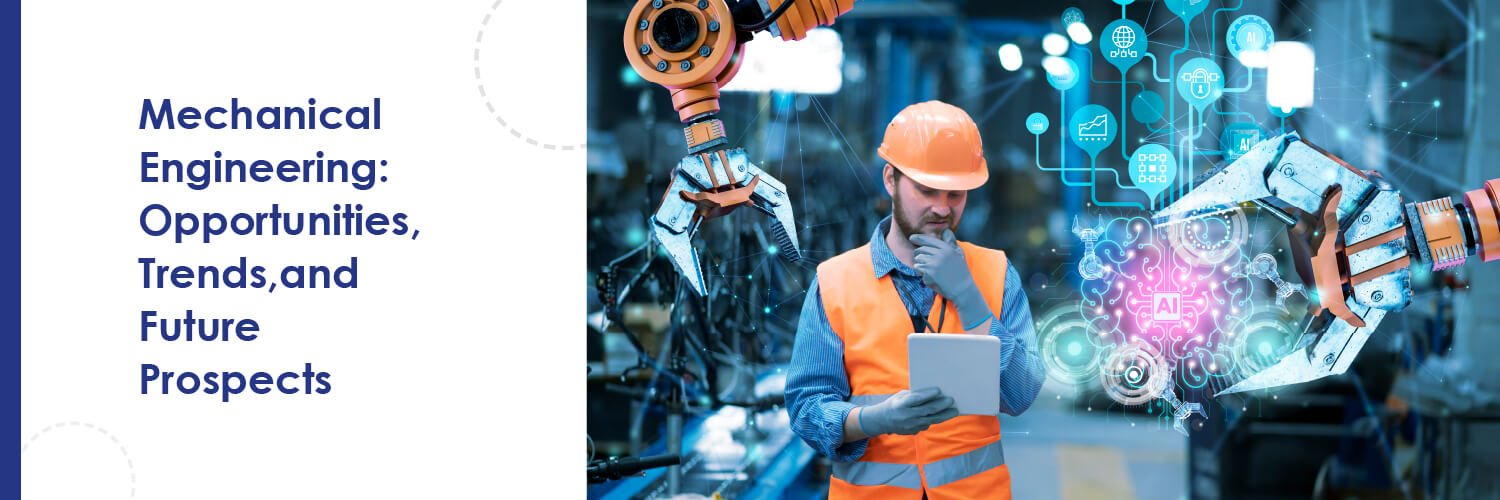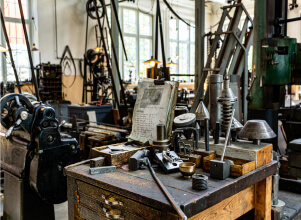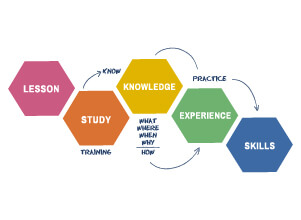Mechanical Engineering Opportunities: Trends and Future Prospects
Understanding Mechanical Engineering
Educational Requirements and Skills
Career Opportunities in Mechanical Engineering
Soft Skills for Mechanical Engineers
Advice for Aspiring Mechanical Engineers

Choosing a career path when you are young is a complex process. But it's not that difficult. If you know what you are good at, and your perspective widens, you can quickly make a decision. Like, if you are into machines, and conceptualizing innovative ideas runs in your mind then mechanical engineering is the career path for you.
Often considered as the important root of several industries, mechanical engineering is shaping the world in unbelievable ways we live in today. This field turns ideas into reality, and helps individuals learn machines and mechanical systems.
In this blog, we will walk you through the mechanical engineering career path. We have covered the foundational principles, diverse career opportunities, and emerging trends so that you can make wiser decisions.

Understanding Mechanical Engineering
At its core, mechanical engineering is the fusion of science, mathematics, and creativity merged to craft tangible solutions. The career path helps individuals to design, analyze, fabricate, and maintain mechanical systems. It is basically the art of applying scientific principles to real-world challenges. The field thrives on innovation and technical acumen.
Subfields and Specialization Within Mechanical Engineering
The scope of mechanical engineering is vast, and so are the subfields and specializations:
- Thermodynamics and Energy Systems: This specialization focuses on subjects like energy conversion, heat transfer, and the creation of sustainable energy solutions
- Mechatronics: Bridging mechanical engineering, electronics, and computer science, this domain covers subjects like automation and intelligent systems
- Manufacturing and Production Engineering: This mechanical engineering subfield focuses on production process optimization. The topics covered in the subjects revolve around efficient and cost-effective manufacturing
- Robotics: Robotics is an interesting specialization and is also the current need of manufacturing market due to the growing automation trend. From designing project based robots, and constructing, to operating them, the subjects covered here are exciting for learners
- Automotive Engineering: This field focuses on vehicle designing and development. Subjects covered here involve topics like enhanced performance, safety, and sustainability of automobiles.
Historical Perspective and Evolution of Mechanical Engineering
Mechanical engineering is no new career field, instead, it's rooted in history. It has evolved from rudimentary tools to complex machinery. If looked into the Industrial Revolution, mechanical engineering played the biggest role. The industries got a new charm through this career field, and it's still reshaping each in many magical ways, like automation with the integration of artificial intelligence in manufacturing. This also gives students an understanding of what Industry 4.0, is all about - enhancing business productivity.


Role of Mechanical Engineers in Solving Real-World Challenges
Mechanical engineers are the architects of innovation. They are problem solvers addressing real-world challenges. From working on complex transportation systems to crafting medical devices that save lives, these professionals work on sustainable energy solutions. Innovating customer products is their main motive, and venturing into space successfully through aerospace engineering is what they do wonderfully.
Educational Requirements and Skills
Mechanical engineering demands a good education and strong knowledge of basics. A bachelor's degree acts as the foundation. From mathematics, science, and engineering principles, to design coursework - you must have a fair share knowledge of the basics.
Moreover, the practical application of the theoretical knowledge gained is crucial here. Mechanical engineering students must immerse themselves in hands-on projects. They should gather first-hand experience in designing, building, and testing mechanical systems. Proficient numeracy and computer literacy are also important - as here, the engineer will have to work on advanced software for modeling, simulation, and analysis.

At MIT Academy of Engineering, mechanical engineers learn new dimensions everyday. Our teachings go beyond classroom lectures, ensuring each student gains practical insights.
Alongside the curriculum, students engage in hands-on projects that bridge the gap between theory and real-world application. We have included courses like artificial intelligence, machine learning, IoT, and cloud computing - so that students stand out as modern mechanical engineers. In the end, they are fully equipped to excel in an evolving technological landscape.

Career Opportunities in Mechanical Engineering
Mechanical engineering unfolds a plethora of career pathways for students. Graduates can find employment in the aerospace, automotive, energy, manufacturing, and robotics sectors. Their roles can vary from being design engineers, production managers, research scientists, and consultants, to entrepreneurs.
Future Prospects in Mechanical Engineering
With tech transformation happening at lightning speed, mechanical engineers can greatly benefit from it. The integration of artificial intelligence and automation in the field heralds a transformative era. Manufacturers want their product line to speed up, they are prioritizing sustainability - and mechanical engineers are best at it.


Soft Skills for Mechanical Engineers
While technical knowledge of subjects is essential, soft skills also play an equally crucial role for mechanical engineers. They have to be good communicators, collaborative, and great problem solvers. These skills will help them engage in teams to articulate ideas and execute successful projects easily.
Advice for Aspiring Mechanical Engineers
For aspiring mechanical engineers, here are a few guiding principles they can walk through
- Nurturing Curiosity: Try maintaining an insatiable hunger for knowledge to stay aware of the latest advancements
- Embracing Practical Learning: Engage in hands-on projects and internships to understand theoretical topics
- Building Professional Networks: Forge connections within the engineering community to gain insights and explore potential career opportunities
- Delving Deeper through Specialization: Consider advanced degrees like an M Tech in Mechanical Engineering to delve further into chosen niches.
Just like every other streams faces their own share of challenges, even mechanical engineers do in their career pathways. They can confront sustainability challenges and environmental concerns. Reason being, in their journey, they will be at the forefront of innovations. Hence, balancing progress with keeping a check on planetary well-being should be important for them.
Conclusion
Mechanical engineering is not just a degree; instead, it's a medium for transformation. Starting out from thermodynamics, mechatronics, manufacturing, robotics, to automotive engineering - B.TECH, M.TECH, and PHD opens a world of possibilities for any student. The integration of artificial intelligence and automation, makes the career path even more promising, interesting, and future-proof.
Now is your chance to become a part of this dynamic field. Explore advanced educational programs at MIT Academy of Engineering (MITAOE) and gain the skills and knowledge you will need to ace the degree and the world.
So, are you ready to become the engineer that shapes the future? Start your journey now!
OUR RECENT BLOG



